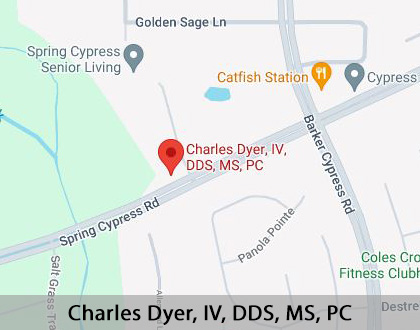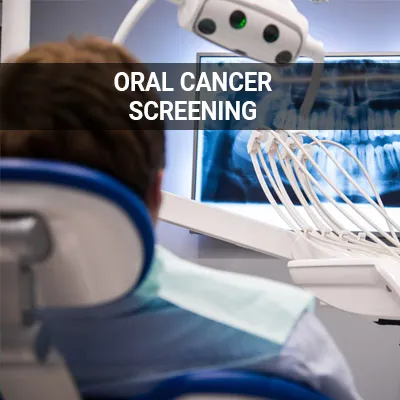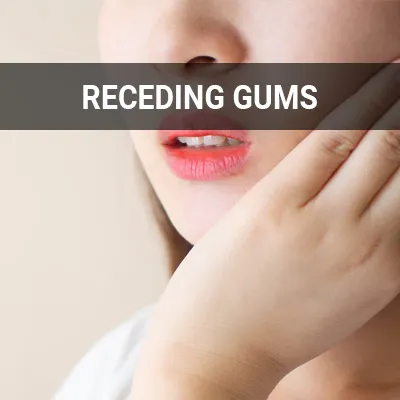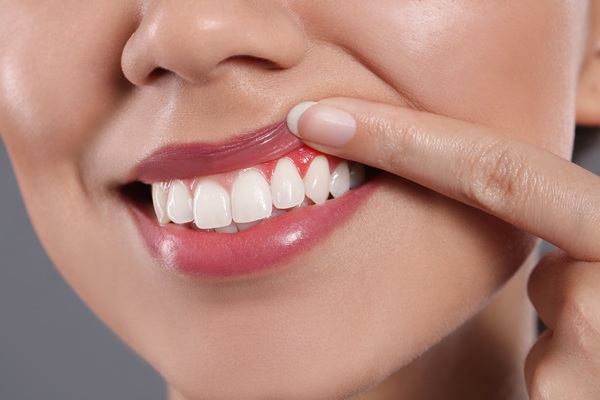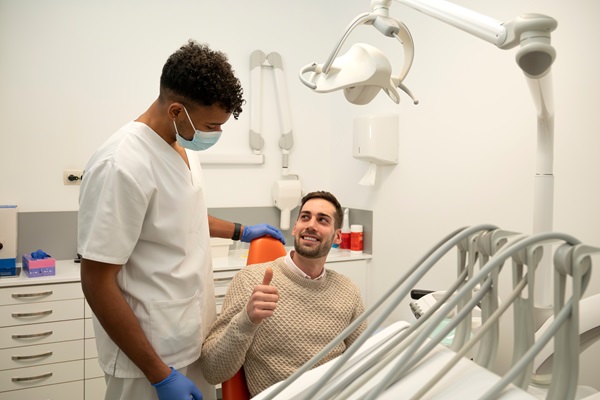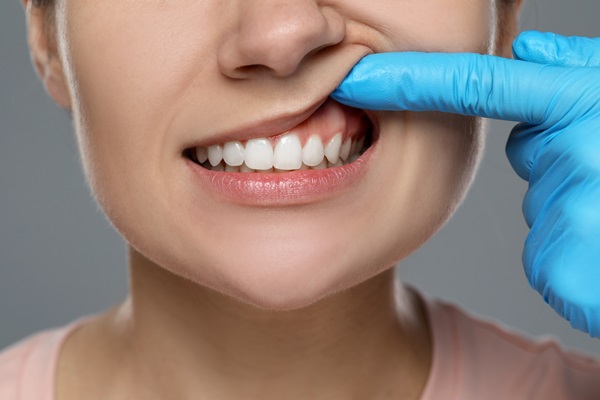Gum Grafting Cypress, TX
Gum grafting is an important procedure performed by a periodontist to combat the effects of gum recession. Gum grafting can restore parts of the gum line lost to gum recession. Unfortunately, gum recession is a common problem among adults that threatens their overall oral health.
Gum grafting is available at Charles E. Dyer IV, DDS, MS, PC in Cypress and the surrounding area. If receding gums are impacting your oral health, a gum graft may help. Call our office at (281) 213-0900 for more information or to schedule an appointment.
What is Gum Grafting?
Gum grafting is an important periodontal treatment for preserving oral health. Also referred to as a gingival graft, the procedure involves placing healthy gum tissue where needed. The surgical procedure takes healthy gum tissue from the patient or a donor and uses it to cover areas where the gums have receded.
According to the Centers for Disease Control and Prevention, nearly half of all adults over 30 years of age have some form of periodontal disease. This increases to 70% for those ages 65 and over. Gum recession, being a major feature of this disease, makes the need for gum grafts a relatively common procedure.
“Also referred to as a gingival graft, the procedure places healthy gum tissue where it is needed.”
Benefits of Gum Grafting
Gum recession is the chief reason behind most gum grafting procedures. It is a common problem in adults and may even occur in younger people. When the gums recede, they are not only unsightly but also leave the roots exposed.
Exposure of the roots can open a person up to a whole host of oral health problems. These include increased tooth sensitivity, decay, infection, and inflammation. Also, the recession often happens so slowly that many people do not notice it is happening. If left untreated, gingival recession can eventually lead to tooth loss.
“Exposure of the roots can open a person up to a whole host of oral health problems.”
Reasons for Needing a Gum Graft
Gum recession is the chief reason behind most gum grafting procedures. It is a common problem in adults and may even occur in younger people. When the gums recede, they are not only unsightly but also leave the roots exposed.
Exposure of the roots can open a person up to a whole host of oral health problems. These include increased tooth sensitivity, decay, infection, and inflammation. Also, the recession often happens so slowly that many people do not notice it is happening. If left untreated, gingival recession can eventually lead to tooth loss.
“Exposure of the roots can open a person up to a whole host of oral health problems.”
The Treatment Process
A gum graft is typically an outpatient procedure that takes about an hour to an hour and a half. The periodontist uses local anesthesia to numb the area the procedure is performed on. Patients do not report much discomfort during the procedure beyond some pressure in the procedure area.
There are three types of gum grafts, and the periodontist will recommend one type based on the patient's individual case. The types of gingival graft procedures are:
- Connective tissue graft: This is the most common gum graft. A piece of connective tissue from under the top layer of tissue is stitched into the area needing the graft. The periodontist opens a small flap in the roof of the mouth to retrieve the tissue.
- Free gingival graft: A small piece of tissue is taken from the roof of the mouth and stitched into the area that needs the tissue. This type of gum graft is usually reserved for those with thin gums who need extra tissue to prevent further recession.
- Pedicle graft: This tends to be the most successful type of gum graft, but the patient needs to have plenty of tissue in the area needing the graft for it to work. The periodontist takes a flap of tissue from an area next to the site of the gum recession to cover the roots of the recessed area.
Right after the procedure, the patient may be asked to rinse their mouth out with an antibacterial mouthwash. Then, the periodontist will discuss how to care for their mouth during the healing period.
“Patients do not report much discomfort during the procedure beyond some pressure in the procedure area.”
Check out what others are saying about our dental services on Yelp: Gum Grafting in Cypress, TX
Questions Answered on This Page
Q. What are the benefits of gum grafting?
Q. Why are gum grafts performed?
Q. What happens during the procedure?
Q. What should patients expect after the procedure?
People Also Ask
Q. What are the different types of gum surgery?
Q. Why would I need a periodontist?
Q. What types of gum medications are there? What medications get prescribed for certain gum conditions?
Q. What are the types of periodontal procedures?
Post-Treatment Care
If the patient has chosen to take sedating medication during the procedure, they will need to arrange for a ride home after. Altogether, it may take a week or two for the mouth to completely heal. However, most are able to return to work or their normal activities the day after surgery. Patients typically have a follow-up appointment with the periodontist about a week after surgery to make sure the gums are healing as they should.
Our team will give the patient detailed aftercare instructions specific to their case, but there are some general things most patients can expect. The patient should not brush or floss the treated area until it is healed. However, they will likely be given a special mouthwash to help control plaque during this period. Some patients are put on an antibiotic to reduce the risk of infection. During the one-to-two-week healing period, be sure to have soft and cool foods on hand, such as Jell-O, eggs, and pasta. We advise not chewing immediately after surgery until the anesthetic has worn off.
Discomfort is a common concern for most patients during the healing period. The discomfort should be minimal and is often well-controlled with over-the-counter pain medication. There is more discomfort associated with gum graft procedures that take tissue from the palate. WebMD states that some describe this wound as a major pizza burn. The good news is that healing tends to happen quickly. If the patient experiences bleeding after surgery that will not stop after 20 minutes of pressure or more pain, swelling, or bruising than originally expected, call our office right away.
“The discomfort should be minimal and well-controlled with over-the-counter pain medication.”
Frequently Asked Questions
Q. What is the cost of a gum graft procedure?
A. The answer to this question depends on your case and the type of gum graft you receive. Since gum grafting is often done out of medical necessity, insurance may cover at least a portion of the procedure. We advise patients to check with their insurance provider for details as each insurance plan differs in its coverage.
Q. Can there be complications?
A. There is always a risk of complications with any surgery. With a skilled periodontal team, there is a small risk and lower failure rate. The periodontist will discuss any potential complications during the consultation. In the event there are complications, our team is well prepared to deal with them.
Q. What causes gums to recede?
A. Gum or gingival recession can be the result of a number of things, including disease and injury. As mentioned before, gum disease can lead to gum recession. However, bad habits such as smoking, poor oral hygiene, brushing too hard, grinding your teeth, and smoking can also cause gums to recede. If you engage in any of these habits, quitting may go a long way to help prevent gum recession. Unfortunately, some causes of receding gums are beyond a person's control, such as hormonal changes in women and a genetic predisposition to receding gums.
Q. When is donor tissue used for a gum graft?
A. Some periodontists and patients prefer using donor tissue for the gum graft. However, using donor tissue requires a great deal of skill on the part of the practitioner. Also, the use of donor tissue is not a viable option for every case. If donor tissue is an option, advantages include being able to graft several teeth in one visit and less discomfort because there is no need to remove tissue from the patient's mouth. The best option for you will be discussed after examining your case.
Q. How should I prepare for a gum graft procedure?
A. Beyond your regular oral hygiene routine, there is no need to do anything extra to be ready for the procedure. Besides arranging a ride after surgery, if you plan to be sedated, you do not need to do much besides show up. There are no precautions or dietary changes to make in the day or hours leading up to the procedure. The periodontist will collect all the information they need at the consultation. Just make sure you have a good understanding of the aftercare instructions before going home after surgery.
Start Feeling Better – Visit Us Today
By visiting us as soon as possible, our team can help get you the professional treatment you need. Instead of waiting around and allowing the symptoms to get worse, we can provide you with treatment options.
Definitions
Call Us Today
Do not let gum recession keep you from smiling or threaten your oral health. Gum recession does not have to be permanent, and we can help. To learn more about gum grafting, call Charles E. Dyer IV, DDS, MS, PC today at (281) 213-0900 to schedule an appointment for a consultation. We look forward to answering your questions.
Helpful Related Links
- American Academy of Periodontology (AAP). American Academy of Periodontology (AAP). 2023
- Center for Disease Control and Prevention (CDC), Periodontal Disease Page. Center for Disease Control and Prevention (CDC), Periodontal Disease Page. 2023
- WebMD, What Is a Periodontist?. WebMD, What Is a Periodontist?. 2023
About our business, license, and website security
- Charles E. Dyer IV, DDS, MS, PC was established in 2007.
- We accept the following payment methods: American Express, Cash, Check, Discover, MasterCard, and Visa
- We serve patients from the following counties: Harris County, Washington County, and Waller County
- We serve patients from the following cities: Cypress, Houston, Katy, Spring, The Woodlands, Brenham, Waller, Sugar Land, Jersey Village, and Hempstead
- TX (License #21174). View License Information and Specifics
- National Provider Identifier Database (1285771352). View NPI Registry Information
- Healthgrades. View Background Information and Reviews
- Norton Safe Web. View Details
- Trend Micro Site Safety Center. View Details
Back to top of Gum Grafting

